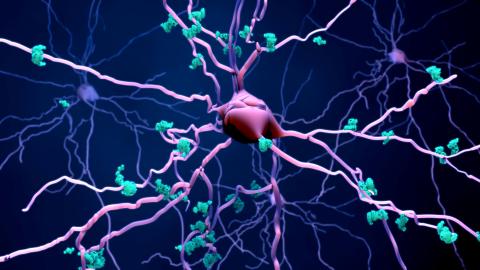Having a father with Alzheimer's can increase the risk of suffering from it more than having an affected mother
While some studies have suggested that having a mother with Alzheimer's may increase the risk of developing the disease, a new study reveals that having a father with the disease may be related to a greater spread of tau protein in the brain, which is a sign of the disease. The study, published in Neurology, does not prove that having a father with Alzheimer's causes these brain changes; it only shows an association.

Jordi Pérez-Tur - alzheimer padre EN
Jordi Pérez-Tur
Research scientist at the Public Research Organisation (PRO) at the Institute of Biomedicine of Valencia of the Spanish National Research Council (CSIC)
Alzheimer's disease (AD) results from the interaction of multiple factors, both internal to the individual (such as genetic factors) and external (environmental, social or cultural factors). Whatever its origin, two lesions appear in the form of protein deposits in the brain. One of them is extracellular and is mainly formed by the peptide A-beta, and the other is intracellular and is mainly formed by tau protein.
One of the factors related to the appearance of AD is the existence of other patients in the family of sufferers. In recent years, various studies have reached contradictory conclusions about the effect that the sex of parents affected by AD has on a person's risk of suffering from the same disease. It is possible that one reason for these contradictory results is the design of the studies carried out. These are generally studies that analyse the population at a specific moment in time, which often leads to hidden biases that can affect the results.
In the work of Ourry and colleagues, on the other hand, they have followed a group of individuals who had one of their parents affected by AD for about six years. During that time, of the 243 individuals studied and followed, 71 developed cognitive impairments.
This study revealed significant differences in AD depending on both the sex of the person suffering from the disease and which of the parents also suffered from it. It was seen that women affected by AD had a greater number of lesions derived from the tau protein and a greater correlation between tau lesions and A-beta lesions. The latter also happens in those people who have a father with AD as opposed to those who have a mother with AD. Finally, it was observed that women had less atrophy in the hippocampus.
In addition to having relevant findings for the knowledge of AD, this work confirms a situation that needs decisive experimental approaches. Considering the bodies of men and women as structures with the same determining factors is a simplification that, throughout the history of medicine, has been particularly detrimental to women. In this sense, focusing on the specificities of the sexes in common diseases, not only in those that only affect one or the other, enriches the knowledge we have of diseases and, furthermore, results in an approximation to a fairer science.
Ourry et al.
- Research article
- Peer reviewed
- People



